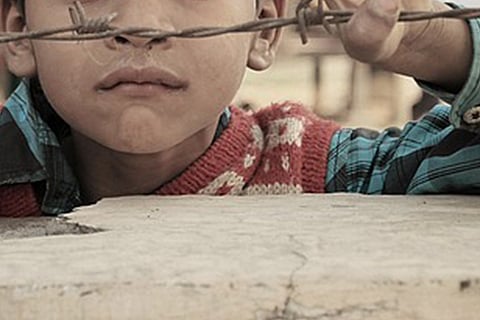

Human trafficking is believed to be the third largest organised criminal activity in the world. There are multiple layers of red tape, corruption and murky political and criminal networks to unravel if one wants to get to the root of a single instance of human trafficking for commercial sexual exploitation.
What comes as a shock however, is that child survivors of commercial sexual exploitation in Karnataka believe that the police, too, are part of the crime.
A study by Roop Sen, a trafficking and migration researcher, reveals some troubling statistics about Karnataka and how it deals with commercial sexual exploitation of children (CSEoC). He shared some of these findings at a recent workshop on the issue, organised by Change.org, Change Mantras and The News Minute.
The context
Karnataka has the second highest number of cases reported under Immoral Traffic (Prevention) Act (ITPA). The state recorded 10 cases in 2015, out of the national figure of 58 according to NCRB data.
The number of cases under POCSO (Protection of children from Sexual Offenses Act) have also been on the rise in the state: From 620 in 2014, the number jumped to 1565 in 2016 – the fourth highest in the country, the study says.
“Several people from NGOs, government departments and media felt that the definition of CSEoC cannot be restricted to child prostitution, as the nature of CSEoC encompasses not just transaction of money but also services. Cases of young boys sexually exploiting children in their neighbourhood in exchange for food and desired material things were mentioned. The scenario of CSEoC is therefore not limited to brothel-based prostitution alone,” it noted.
Further, according to survivors of child prostitution, the average age of a child in a brothel is just 10 years. A child of 15-16 years of age is considered ‘experienced’, they said.
Differentiate between forced child and adult sex work
The study departs from a survivor-centric approach and focuses instead on the demand aspect, and ultimately holding the customers also responsible along with brothel owners and traffickers.
The police, the study notes, conflate commercial sexual exploitation of children and adults, and justify lack of prosecution of those who purchase sex from minors because there is no separate law that incriminates customers.
Roop had said in the workshop that it is possible to apply POCSO to penalise customers, but it is not done in Karnataka and most parts of the country. “It's easier for law enforcement to incriminate abusers when there's non-commercial sexual exploitation. But when there's financial transaction, it somewhat legitimises the customer in their eyes,” he added.
The study also noted that the feasibility of intervention was perceived to be quite low for the following reasons:
“(a) failure of WCD in rehabilitation of victims and ensuring they support police and judiciary in prosecution,
(b) it is not convenient for local police to investigate CSEC crimes because of corruption, attitude towards sex work, lack of specialised knowledge, difficulty in proving CSEC in court and lack of cooperation from judiciary,
(c) there is no data or profile of purchasers without which the police cannot intervene, and WCD is responsible for this data gathering and (d) CSEC not a crime that has institutional priority.”
Survivors themselves are found to be wary of police and law enforcement, thinking they are part of the criminal ring. Meanwhile, the police, the study notes, need to have a better understanding of CSEoC, only a fraction of which is trafficking and child prostitution.
No information about Anti-Trafficking Units
According to the Home Ministry website, there are nine Anti-Human Trafficking Units (AHTUs) in Karnataka. However, there was no information about them on the state website itself. Responses from people interviewed for the research suggested that the AHTUs were “poorly resourced and lacked expertise in investigation.”
The reasons for the inefficiency were contemplated to range from frequent transfers of investigating officials to gross underutilisation of funds allocated. “According to one stakeholder, the Central Government has sent back unutilised funds every year, but AHTUs remain inefficient,” the study noted.
The stakeholders interviewed also felt that it was not that the Karnataka police lacked the resources to investigate cases of CSEoC. Rather, it was the intention, skill, and attitude towards working to quell the demand for minor sex workers which was found missing.
The major missing link here was the lack of trust, which was also preventing stakeholders from collaborating with law enforcement.
Lack of empathy, capacity-building
It is well-known that the police can be less than sympathetic when need be. The problem intensifies however when the victims are children who have been abused and traumatised.
While the lack of empathy among law enforcement officials is problematic, laws governing CSEoC also needed to be made easier to implement, the study argues. Capacity-building itself is incomplete without ensuring that it is utilised, it added.
It also emphasised a point that Roop had spoken about at the workshop – media coverage as well discourse around CSEoC continues to be survivor-centric, with little visibility of the trafficker, and the customer.
The stakeholders considered for the research echoed a similar concern. They felt a need for “capacity building in terms of understanding the purchaser’s profile, motivations and behaviour.” Social workers too, agreed that while they knew a lot about the survivors, the same could not be said about the offenders who bought sex with the children.